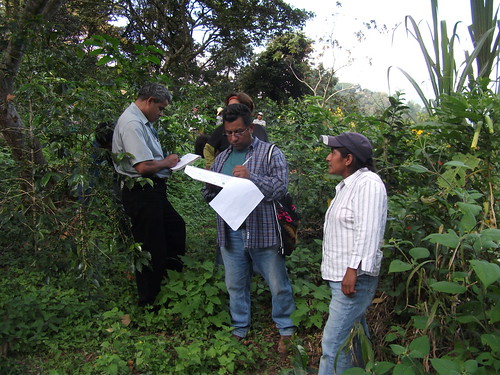This is the fourth installment of the Organic 101 series that explores different aspects of the USDA organic regulations.
When the National Organic Program (NOP) declared in late 2009 that it was the beginning of the “age of enforcement,” it renewed its mission to protect the integrity of the USDA organic seal and the products labeled organic.
Enforcement efforts are a critical part of that mission, and investigating violations of the organic standards alleged by complaints is an integral component of the NOP’s work.
When the program receives a complaint that alleges a violation of the organic standards, it follows a standard process of evaluation. First, it assesses the nature of the complaint and the evidence provided by the complainant. Those submitting complaints—they can include anyone, from a member of the public to a governing official—are asked to provide as much detail as possible to facilitate NOP’s investigation.
When a complaint is about a certified operation, the NOP contacts the operation’s certifying agent to request that the certifier investigate the matter. The certifier then submits its findings to the NOP so the program can determine if it needs to conduct follow-up investigations. In most cases, when issues of noncompliance aren’t adequately addressed, the certifier can either suspend or revoke the operation’s certification, which can bar it from the organic program for up to five years.

Certifiers are a vital part of a complete and scalable system that supports organic integrity. In addition to conducting investigations when necessary, they regularly audit their certified organic operations as the standards require. These annual audits include review of records and thorough assessments to confirm that organic system plans are consistent with practices. Mandatory on-site inspections examine every component of the operation. For example, a farm inspector will inspect an operation’s fields, seed sources, soil conditions, weed and pest management systems, water systems (for irrigation and post-harvest handling), storage areas, inputs, record-keeping, harvest and sales information, contamination and commingling risks and prevention and equipment.
The NOP in turn audits 100 percent of its certifying agents located in the United States and around the world. This oversight ensures that certifying agents fully understand the USDA organic regulations and apply them appropriately and consistently across the organic farms and businesses that they certify. When the NOP identifies areas of concern, it provides training and publishes additional guidance to enhance uniformity among the 93 accredited certifying agents. NOP also conducts issue-based investigations as needed, which can be focused on a specific country or type of organic product.
In the past fiscal year, NOP received 182 complaints. During that time, it investigated and closed 129 complaints; an additional 135 complaints were closed in just the past six months. Thorough case investigations are vital not only to make sure that violators are held accountable for their actions, but also to protect organic operations who are in compliance with the regulations but nonetheless the subject of complaints. Where willful wrong-doing is found, such as when an operation knowingly mislabels a product as organic, the NOP has the authority to issue civil penalties, which can be as high as $11,000 per violation. Since the inception of the “age of enforcement,” 21civil penalties have been issued totaling more than $130,000.
When a case involves alleged criminal acts of large-scale fraud, the NOP supports the USDA Office of Inspector General and the Department of Justice in investigating. In February 2012, investigations led to the guilty plea of a man in California in connection with selling prohibited synthetic fertilizer as acceptable for use on organic operations and in December 2011, the guilty plea of a man in Oregon for selling more than 4.2 million pounds of corn falsely labeled as organic.
The complaint handling process is a vital element of the NOP’s robust certification and compliance program. For more information, visit www.ams.usda.gov/nop.


